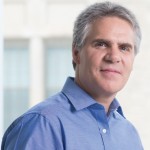
Canada’s global health role, a scientific rundown
The Lancet has launched a special series on Canada, a first-ever for the prestigious medical journal.
The series, which University of Manitoba professor James Blanchard assisted with, examines the country’s system of universal health coverage and its global role in health, including Canada’s legacy, challenges, and future path on issues such as access to health care, gender equality, global health diplomacy, and Indigenous peoples’ health.
Blanchard, a Canada Research Chair in Epidemiology and Global Public Health and professor in the Rady Faculty of Health Sciences, worked with colleagues on this commentary. The authors’ summary is reprinted here:
Canada’s global health role: supporting equity and global citizenship as a middle power
Canada’s history of nation building, combined with its status as a so-called middle power in international a airs, has been translated into an approach to global health that is focused on equity and global citizenship. Canada has often aspired to be a socially progressive force abroad, using alliance building and collective action to exert in uence beyond that expected from a country with moderate nancial and military resources. Conversely, when Canada has primarily used economic self-interest to de ne its global role, the country’s perceived leadership in global health has diminished. Current Prime Minister Justin Trudeau’s Liberal federal government has signalled a return to progressive values, driven by appreciation for diversity, equality, and Canada’s responsibility to be a good global citizen. However, poor coordination of e orts, limited funding, and the unaddressed legacy of Canada’s colonisation of Indigenous peoples weaken the potential for Canadians to make meaningful contributions to improvement of global health equity. Amid increased nationalism and uncertainty towards multilateral commitments by some major powers in the world, the Canadian federal government has a clear opportunity to convert its commitments to equity and global citizenship into stronger leadership on the global stage. Such leadership will require the translation of aspirational messages about health equity and inclusion into concrete action at home and internationally.
Read more
President David Barnard talks about University of Manitoba’s international role.
Research at the University of Manitoba is partially supported by funding from the Government of Canada Research Support Fund.







